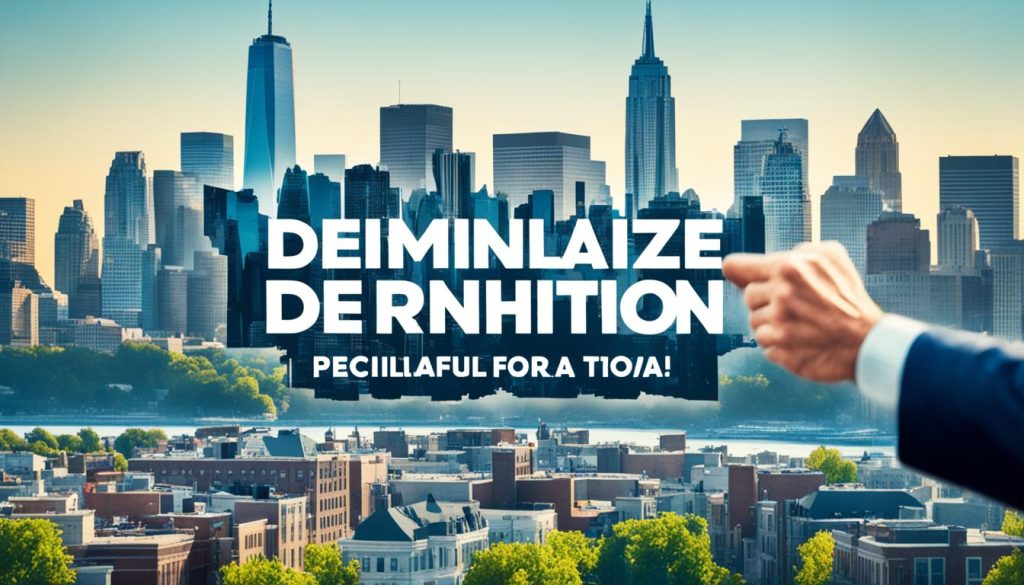Did you know that Canada has recently made a significant move in its drug regulations? With the goal of reducing barriers and stigma surrounding substance use, Health Canada has granted an exemption to the Province of B.C. under the Controlled Drugs and Substances Act. This exemption allows for the decriminalization of personal possession of certain illegal drugs. But what does this mean for the legality of heroin in Canada?
Before diving into the specifics of the exemption, it’s essential to clarify the distinction between decriminalization and legalization. While decriminalization eliminates criminal charges for personal possession, it doesn’t equate to legalization. To fully understand the impact of this exemption on heroin in Canada, let’s explore the details.
Key Takeaways:
- Health Canada has granted an exemption to B.C. under the Controlled Drugs and Substances Act, allowing for the decriminalization of personal possession of certain illegal drugs.
- Decriminalization is not the same as legalization, and it only applies to possession of specific drugs within certain limits.
- The exemption aims to reduce barriers and stigma for individuals seeking support and services for substance use.
- Heroin remains illegal in Canada, but the exemption affects the penalties for personal possession.
- The exemption only applies in B.C. and is set to expire on January 31, 2026.
Now, with a better understanding of the exemption and its implications, let’s take a closer look at the benefits of decriminalization in the next section.
The Benefits of Decriminalization
The decriminalization of personal possession of certain illegal drugs is a crucial step in the fight against the toxic drug crisis in British Columbia. This progressive approach aims to address substance use by reducing barriers and stigma that often prevent individuals from accessing life-saving support and services.
Decriminalization is supported by public health experts, police, and advocates who recognize its potential benefits in improving public health outcomes and the criminal justice system. By shifting the focus from punitive measures to a more health-centered approach, decriminalization can lead to reduced stigma surrounding substance use and improved access to treatment and support services.
International evidence from countries such as Portugal, Uruguay, and Germany demonstrates the effectiveness of decriminalization in reducing harms associated with substance use. Contrary to common misconceptions, decriminalization does not lead to increased rates of drug use but rather provides avenues for individuals to seek help without the fear of criminal charges.
By prioritizing public health and addressing substance use as a public health issue, decriminalization creates opportunities for individuals to engage in harm reduction strategies, access treatment and support, and ultimately improve their overall well-being. It also allows law enforcement resources to be reallocated towards more pressing public safety concerns.
Through decriminalization, British Columbia aims to create a more compassionate and effective response to substance use, benefiting both individuals and communities. By breaking down barriers and reducing stigma, decriminalization paves the way for a comprehensive approach focused on public health and community well-being.

The Exemption Details
Under the Controlled Drugs and Substances Act, Health Canada has granted an exemption that applies to certain illegal drugs in B.C. From January 31, 2023, to January 31, 2026, adults (18 years and older) will not face arrest or charges for possessing small amounts of opioids, crack and powder cocaine, methamphetamine, and MDMA. To be exempt from arrest or criminal charges, the combined total of these drugs must be 2.5 grams or less.
Please note that this exemption does not apply to certain locations, such as schools, licensed childcare facilities, and specific public spaces.

What Remains Illegal
Although decriminalization allows for the personal possession of small amounts of certain illegal drugs, it is important to note that possession of a combined total above 2.5 grams or possession of other illegal drugs not included in the exemption remains illegal. Decriminalization does not legalize these drugs, nor does it permit their sale in stores. Drug production, trafficking, import, export, and possession for purposes other than personal use are still considered illegal under the Controlled Drugs and Substances Act.
It is essential to understand that while individuals in Canada may be exempt from criminal charges for small-scale drug possession, engaging in activities such as drug production, trafficking, or the possession of larger quantities can result in severe legal consequences. These activities contribute to the distribution of illegal substances and undermine public safety.
Drug production involves growing, manufacturing, or synthesizing illegal drugs. This process is strictly prohibited and punishable under Canadian law, regardless of the quantity produced. Likewise, trafficking refers to the selling, distribution, or transportation of drugs for sale. Engaging in drug trafficking can lead to significant criminal charges and penalties, including imprisonment and hefty fines.
Additionally, any activities involving the import or export of illegal drugs are unlawful. Transporting drugs across international borders or bringing them into Canada from another country is considered drug smuggling and can result in severe criminal consequences for those involved. It is vital to note that traveling with illegal drugs, even for personal use, is strictly prohibited and can lead to serious legal repercussions.
In summary, decriminalization of personal drug possession in Canada does not extend to drug production, trafficking, import, or export. Engaging in these illegal activities can result in criminal charges, including imprisonment and significant fines.
It is crucial to prioritize public safety, understand and respect the laws surrounding illegal drugs, and seek support from appropriate health and social services to address substance use concerns.
| Illegal Drug Activities | Legal Consequences |
|---|---|
| Drug Production | Criminal charges, imprisonment, fines |
| Drug Trafficking | Criminal charges, imprisonment, fines |
| Import/Export of Illegal Drugs | Criminal charges, imprisonment, fines |
Exceptions and Restrictions
While the exemption granted by Health Canada under the Controlled Drugs and Substances Act allows for the personal possession of certain illegal drugs in British Columbia, there are exceptions and restrictions that individuals must be aware of.
Firstly, the exemption does not apply to specific locations including K-12 schools, licensed childcare facilities, playgrounds, splash pads, wading pools, and skate parks. It is essential to note that possessing any amount of illegal drugs in these public spaces may result in criminal charges.
Furthermore, it is crucial to understand that despite the exemption, Canada’s border rules remain unaffected. Taking illegal drugs across domestic and international borders, even for personal use, is still illegal. It is important to comply with the regulations and ensure that any travel or transportation is done in accordance with the law.
Special restrictions also apply to personal motor vehicles, watercraft, and public transit. Possessing illegal drugs in these modes of transportation may lead to legal consequences. Individuals should be aware of these restrictions and refrain from carrying illegal substances in vehicles or public transportation.
It is worth mentioning that members of the Canadian Armed Forces are still subject to criminal charges for drug possession unless authorized. While the exemption provides certain allowances for personal possession of drugs, it does not grant immunity to armed forces personnel.
| Location | Exceptions |
|---|---|
| K-12 Schools | Exemption does not apply |
| Childcare Facilities | Exemption does not apply |
| Playgrounds | Exemption does not apply |
| Splash Pads | Exemption does not apply |
| Wading Pools | Exemption does not apply |
| Skate Parks | Exemption does not apply |
Youth and the Law
For individuals under the age of 18, the exemption does not apply, meaning that youth possession of illegal drugs remains subject to the federal Youth Criminal Justice Act. This legislation governs the response to illegal activities committed by young persons, emphasizing the importance of accountability, rehabilitation, and reintegration.
Specific regulations are in place to ensure the safety of youth and prevent drug use in educational institutions, licensed childcare facilities, and recreational spaces such as splash pads, skate parks, and playgrounds. These youth-specific regulations aim to create an environment that promotes healthy development and protects young individuals from the consequences of drug possession.
It is crucial to note that the exemption does not waive consequences for youth possession. Instead, the focus is on diverting young individuals towards rehabilitation and reintegration through community or health services. By providing support and guidance, the aim is to address the underlying issues that may contribute to youth involvement in drug possession and help them make positive life choices.
Image: Youth Possession
| Age Group | Jurisdiction | Legislation |
|---|---|---|
| Under 12 | Canada | N/A |
| 12-17 | Canada | Youth Criminal Justice Act |
| 18 and above | Canada | N/A |
Implementation and Monitoring
In preparation for the implementation of decriminalization, B.C. has taken significant steps to ensure a smooth transition. One crucial aspect of this process is providing law enforcement with comprehensive training on a health-focused approach to substance use. By equipping officers with the necessary knowledge and skills, the implementation process can proceed with sensitivity and understanding.
Furthermore, public education efforts have been undertaken to inform the general public about the changes regarding decriminalization. These initiatives aim to raise awareness and ensure that individuals are well-informed about the exemption, its limitations, and the available resources for accessing health and social services.
Ongoing monitoring and evaluation are fundamental components of the decriminalization process. Both federal and provincial governments are working collaboratively to assess the impact on law enforcement practices, health outcomes, and the progress made in building a comprehensive system of care for mental health and addictions.
Law Enforcement Training
Law enforcement officers play a critical role in the successful implementation of decriminalization. Ensuring that they receive appropriate training is essential to support the well-being and safety of individuals who use substances. By adopting a health-focused approach, officers can better understand and respond to the complex needs of individuals affected by substance use.
Public Education
Effective public education plays a vital role in dispelling myths and reducing stigma surrounding substance use. By providing accurate and accessible information to the public, misconceptions can be addressed, and individuals can make informed decisions regarding their health and well-being. Public education efforts also aim to connect individuals to essential resources and support services.
Monitoring and Evaluation
Monitoring and evaluation allow for a comprehensive assessment of the impact of decriminalization. By continuously monitoring the implementation process and evaluating the outcomes, governments can make informed decisions about the effectiveness of the exemption. This ongoing assessment ensures that appropriate adjustments can be made to improve the overall approach and address any challenges that may arise.
Resources and Further Information
If you want to learn more about the decriminalization of certain illegal drugs in B.C., there are several resources available to provide you with detailed information and support. Understanding the exemption, drug stigma awareness training for law enforcement, education on drug-impaired driving, and guidance on legal versus illegal cannabis is crucial for staying informed about the current drug regulations in Canada.
One valuable resource is Public Safety Canada, which offers support for crime prevention initiatives and international cooperation efforts to combat the illegal drug trade. By accessing these resources, you can gain a comprehensive understanding of the ongoing efforts being made to address substance-related harms and promote safer and healthier communities in B.C.
To find out more and access these resources, head over to the official websites and information channels dedicated to decriminalization in B.C. Stay informed, engage with the resources available, and play an active role in reducing drug-related stigma and promoting public safety in your community.